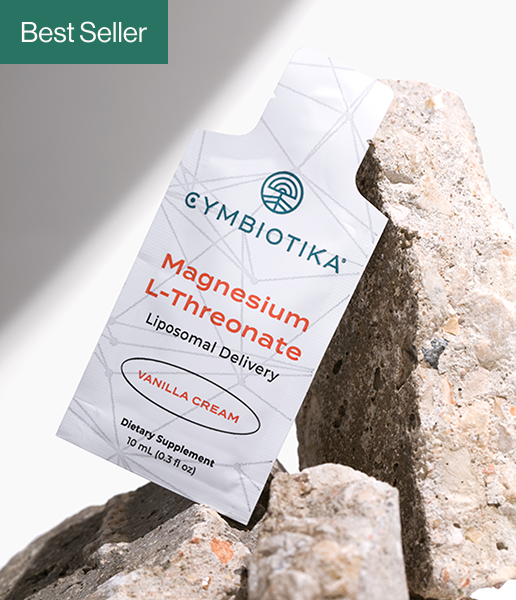
BIO-CHARGED COCONUT ACTIVATED CHARCOAL
A Powerful, Gentle Detoxifier
Made from burning coconut shells in low oxygen concentrations. The remaining charcoal substance is activated, by using steam distillation at very high temperatures. The final material is a porous version of carbon that can bind to many elements and impurities. A special form of carbon, the use of activated charcoal dates back thousands of years to the times of the ancient Egyptians. Healthy charcoal is said to be “activated” because of its porous consistency, which contains a negative charge that attracts positively charged toxins. Charcoal is said to attract 100 times its weight in actual toxic materials.
The Benefits of Detoxifying the system with Activated Charcoal
*Increasing energy levels: People who detox report feeling more energized and alert! Ridding the body of excess waste: Naturally, a good bowel movement helps to remove the extra waste most people store. A good flush of the colon always helps with removing toxins!
*Aids in weight loss: Think of your body working in more efficient ways then ever before. There are no toxins distracting and slowing down body functions. Your body will become more efficient at burning energy and breaking down fat.
*Improves immune system: Similar to above, with a clean and clear system, your body is better able to detect and rid the body of bacteria and viruses which slow it down.
*Better hair: Toxins can cause hormones and proteins to be thrown off. Expect your hair to grow out cleaner, stronger and healthier than before.
*Clarity of the mind and quicker thinking: Think of toxins as plaques on the brain which get in the way. As your body is rid of toxins, people report feeling less foggy; it means neurons are better able to fire. You’ll feel more alert and sharper at thinking!
*Promotes Anti-aging: Overall, it is safe to say you’ll experience the benefits of anti-aging. Healthier organs, hair, skin, and brain all contribute to longevity and quality of life.
Improve Liver, Adrenal Gland And Kidney Functions With Activated Charcoal
First and foremost, it’s important to know that your body’s main ally in detoxification is the liver. This vital organ works hard to keep your hormones balanced and to keep PMS, cramps, endometriosis, PCOS, and other troublesome conditions at bay.
Charcoal helps prevent toxic build up in the liver and kidneys by absorbing toxins in the stomach and intestines, preventing them from being absorbed into the body and reaching these organs. (6). This ensures that the liver and kidney don’t become overrun with toxins. It also increases bile flow, which is used to expel toxins from the body.
Professor Rajiv Jalan, a liver consultant who is leading the carbon research program, said: ‘Liver disease is having a massive impact on lives. It is up there with diabetes as something we have to tackle. ‘We now realize that these toxins play a very important part in the damage of the liver. ‘We see quite a lot of people with liver disease due to alcohol and obesity. Some of them we can’t save. But we hope that this treatment will very soon contribute to reversing liver disease and help save some of those patients.’
Kidney health
Activated charcoal may be able to assist kidney function by filtering out undigested toxins and drugs. Activated charcoal seems to be especially effective at removing toxins derived from urea, the main byproduct of protein digestion.
More research is needed, but some animal studies show that activated charcoal may help improve kidney function and reduce gastrointestinal damage and inflammation in those with chronic kidney disease. A 2014 study saw rats with induced, chronic kidney disease given 4 grams (g) per kilogram per day of an oral activated charcoal preparation. The researchers found that the animals had significant reductions in intestinal inflammation and damage. (1)
In another 2014 study, rats with induced chronic renal failure were fed mixtures containing 20 percent activated charcoal, and they also experienced improved kidney function, and a reduced rate of kidney inflammation and damage. (2)
Charcoal lowers the concentration of total lipids, cholesterol, and triglycerides in the blood serum, liver, heart and brain.
In one study on patients with high cholesterol, reported in August, 1986 in the British journal, The Lancet, two tablespoons (8 gms) of activated charcoal taken three times a day for four weeks, lowered total cholesterol 25%, lowered LDL cholesterol 41%, and doubled their HDL/LDL (high-density lipoprotein/low-density lipoprotein) cholesterol ratio. Kidney International Supplement (June 1978)(3) demonstrated that activated charcoal is able to significantly reduce serum triglycerides (up to 76%) in severely hyperlipidemic patients, and suggested that "charcoal may find applicability in the management of azotemic diabetic and nephrotic hyperlipidemia.”
These findings were again confirmed in a Finnish study reported in the European Journal of Clinical Pharmacology in 1989. (4) Seven patients were fed 4,8,16, or 32g of activated charcoal per day. "Serum total and LDL-cholesterol were decreased (maximum 29% and 41%, respectively) and the ratio of HDL/LDL- cholesterol was increased (maximum 121%) by charcoal in a dose dependent manner." In another study of ten patients with severe hypercholesterolaemia the effectiveness of activated charcoal was compared to cholestyramine (Questran®). Activated charcoal was found to lower total serum cholesterol, and raise the HDL/LDL ratio on a par with cholestyramine and also reduced serum triglycerides, whereas cholestyramine raised serum triglycerides!
Microscopic tissue examination shows that a daily dose of activated charcoal may prevent many cellular changes associated with aging – including decreased protein synthesis, lower RNA activity, organ fibrosis as well as sclerotic changes in the heart and coronary blood vessels. We can safely say, as an anti-aging adjunct to a total health program, the above cumulative effects of charcoal upon one’s blood chemistry, may add up to a longer life and improved overall health.
Charcoal Doesn’t Deplete Your Body of Nutrients…
Some people have wondered if charcoal also absorbs nutrients. In the book Activated Charcoal, David O. Cooney states:
“Charcoal added to the diet of sheep for six months did not cause a loss of nutrients, as compared with sheep not receiving charcoal. … 5 % of the total diet was charcoal. It did not affect the blood or urinary levels of calcium, copper, iron, magnesium, inorganic phosphorus, potassium, sodium, zinc, creatinine, uric acid, urea nitrogen, alkaline phosphatase, total protein or urine pH.” (5).
Intestinal Support. Alleviating Gas and Bloating
Activated charcoal works by binding the gas-causing byproducts in foods that cause discomfort. A study in the American Journal of Gastroenterology found that activated charcoal prevents intestinal gas following a typical gas-producing meal.Some people find that activated charcoal for diarrhea is also effective, especially when the diarrhea is caused by toxic overload.(7)
How does Activated Charcoal work?
Activated Charcoal binds to chemicals and toxins and prevents these substances from absorbing into your body.
Charcoal does not absorb toxins; it adsorbs toxins. The word adsorb is important here.
When a material adsorbs something, it attaches to it by a chemical attraction. Activated Charcoal has a huge surface area giving it countless bonding sites. When certain chemicals come in contact with its carbon surface, they attach to the surface and are trapped. This bond will never break. The toxins, enveloped by the charcoal are then safely shuttled out of the body. This process of assisted detoxification reduces a huge burden on the liver.
Some specific ways activated charcoal can be used include:
Heavy Metal Detoxification: This is by far the most common use for activated charcoal today, and rightly so. In 2005, a study spearheaded in part by the Environmental Working Group found “an average of 200 industrial chemicals and pollutants in umbilical cord blood from 10 babies born in August and September of 2004 in U.S. hospitals. Tests revealed a total of 287 chemicals in the group. The umbilical cord blood of these 10 children, collected by the Red Cross after the cord was cut, harbored pesticides, consumer product ingredients, and wastes from burning coal, gasoline, and garbage.” The scary fact is that no matter how clean your diet and lifestyle is, we ALL have various toxins within us, simply due to environmental factors such as pollutants in our air, water and soil. Activated charcoal has been known to remove such heavy metals as mercury, copper, arsenic and lead. (8)
Intestinal Health: Intestinal health is important not only for the process of digestion but also because the majority (60 to 80%) of your immune system cells live in your gut. In the intestines, charcoal works through a process of adsorption (not absorption). Adsorption has to do with the electrical attraction of toxins to the surface area of negatively-charged particles (in this case, fine particles of activated charcoal) in the intestinal tract. Charcoal is not absorbed by the body and will eventually exit through the bowels, along with the toxic substances it has attracted to it. If you use activated charcoal for intestinal detox, you may experience very black stool. Don’t be surprised! This is normal and can actually help you discover the speed at which materials are passing through your system as a whole.
Lowering Cholesterol: In a study conducted almost thirty year ago by the British journal The Lancet, patients with high cholesterol who took activated charcoal (8 gm) three times per day had a lowered LDL of 41% and a total lowered cholesterol level of 25%.
Wound-Healing and Infection-Fighting: For thousands of years, carbon (i.e. charcoal) has been used around the surface area of wounds in order to keep infection at bay. It has also been used for accidental poisonings as well as insect and snake bites, again because of its toxin-drawing abilities.
FOUND IN THE FOLLOWING PRODUCT(S)
Works Cited & Clinical Research
1. Oral activated charcoal adsorbent (AST-120) ameliorates CKD-induced intestinal epithelial barrier disruption
2. The effect of activated charcoal on adenine-induced chronic renal failure in rats
3. Charcoal-induced Lipid Reduction in Uremia
4. Activated Charcoal in the Treatment of Hypercholesterolaemia: Dose-Response Relationships and Comparison With Cholestyramine
5. D.O. Cooney, Activated Charcoal Antidotal and other Medical Uses. Marcel Dekker, New York and Basel, 1983.
6. Activated Charcoal- Past, Present and Future
7. Efficacy of activated charcoal in reducing intestinal gas: a double-blind clinical trial
8. Body Burden: The Pollution in Newborns
9. THE UNIVERSAL ANTIDOTE AND DETOXIFIER ....
10. Prehospital Activated Charcoal: The Way Forward
11. Out-of-hospital administration of activated charcoal by emergency medical services
12. Oral activated charcoal in the treatment of intoxications. Role of single and repeated doses










